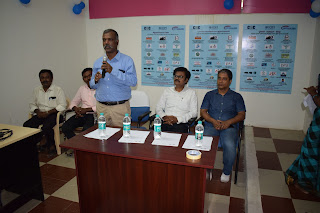Today, 26 June 2024, on International Day Against Drug Abuse and Illicit Trafficking, we stand united in raising awareness about the devastating impact of drug abuse and illicit trafficking on individuals, families, and communities. This day, observed annually on June 26th, serves as a reminder of the importance of tackling this global issue with urgency and compassion.
The Importance of Awareness- Drug abuse and illicit trafficking are not just individual problems; they are societal issues that affect everyone. Awareness is crucial because:
- Education By understanding the risks and consequences of drug abuse, people, especially the youth, can make informed decisions.
- Prevention: Awareness campaigns can help prevent the initiation of drug use and reduce the stigma associated with seeking help.
- Support: Informed communities are better equipped to support those struggling with addiction and advocate for effective policies.
Understanding the root causes of drug abuse and trafficking is essential in addressing the issue.
Some of the primary causes include:- Socioeconomic Factors: Poverty, unemployment, and lack of education can drive individuals towards drug use as a coping mechanism.
- Mental Health Issues: Many individuals turn to drugs to self-medicate for conditions like depression, anxiety, and trauma.
- Peer Pressure: Young people, in particular, may succumb to peer pressure and experiment with drugs.
- Lack of Awareness: Many people are unaware of the dangers of drug abuse and the long-term consequences it entails.
Support Systems Available
In India, various support systems are available to combat drug abuse and support those affected:
Community and NGOs:
- Rehabilitation Centers: Various Organizations like the Foundation for a Drug-Free World and Narcotics Anonymous provide rehabilitation services and support groups.
- Awareness Campaigns: NGOs like us (WORD in Namakkal District) conduct workshops, seminars, and street plays to educate communities about the dangers of drug abuse.
- Psychosocial Support and Counseling Services: Like us in WORD, many NGOs offer free or subsidized psychosocial support and counseling services for individuals and families affected by drug abuse. These services address the psychological and social aspects of addiction.
- Networking Initiatives: Collaborative efforts between NGOs, community groups, and healthcare providers ensure a comprehensive approach to prevention and treatment.
Government Initiatives:
- National Action Plan for Drug Demand Reduction (NAPDDR): This plan aims to reduce drug demand through education, treatment, and rehabilitation.
- District Mental Health Support Units: These units provide localized mental health services at the District level, offering support to those affected by drug abuse and their families and undertake various collaborative initiatives with NGOs and the other Government Departments.
- Anti-Drug Campaigns: The government runs nationwide campaigns to raise awareness and reduce the stigma associated with seeking help.
- Legal Measures: Strict laws and regulations are in place to combat drug trafficking and distribution.
Immediate Actions to Be Taken Among the Youth
To avert youth from falling into the trap of drug abuse and to encourage responsible behavior, the following actions are essential:
- Education and Awareness Programs: Schools and colleges should incorporate comprehensive drug education programs that inform students about the risks and consequences of drug use.
- Life Skills Education Programs: These programs should be integrated into the curriculum to equip young people with skills such as decision-making, problem-solving, and stress management, helping them resist peer pressure and make healthy choices.
- Skill Development and Employment Opportunities: Providing vocational training and job opportunities can reduce the socioeconomic factors that contribute to drug abuse.
- Mental Health Support: Accessible mental health services, including those offered by District Mental Health Support Units, should be available to help young people cope with stress, anxiety, and other psychological issues.
- Peer Support Groups: Establishing peer support groups can create a sense of community and provide a safe space for youth to discuss their challenges and receive guidance.
- Parental Involvement: Parents should be educated about the signs of drug abuse and the importance of open communication with their children.
- Productive Time Management Measures: Encouraging youth to engage in structured activities such as sports, arts, volunteering, and other hobbies can help them manage their time effectively and reduce the likelihood of drug use.
The International Day Against Drug Abuse and Illicit Trafficking is a crucial opportunity to renew our commitment to combating this pervasive issue. By raising awareness, understanding the causes, leveraging support systems, and taking immediate action, we can create a society where individuals, especially the youth, are empowered to lead drug-free and fulfilling lives.
This huge problem can not be tackled by a single stakeholder. Let us stand together and be active in this fight against drug abuse and illicit trafficking, ensuring a healthier and brighter future for all.


































